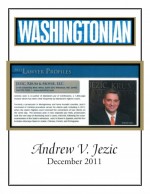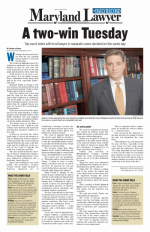
Montgomery County, Maryland, criminal Cases.
Article Link
Gary Smith says he didn’t kill his roommate. Montgomery County prosecutors say otherwise.
Can brain scans show whether he’s lying?
Smith is about to go on trial in the 2006 shooting death of fellow Army Ranger Michael McQueen. He has long said that McQueen committed suicide, but now he says he has cutting-edge science to back that up.
While technicians watched his brain during an MRI, Smith answered a series of questions, including: “Did you kill Michael McQueen?”
It may sound like science fiction. But some of the nation’s leading neuroscientists, who are using the same technology to study Alzheimer’s disease and memory, say it also can show — at least in the low-stakes environment of a laboratory — when someone is being deceptive.
Many experts doubt whether the technology is ready for the real world, and judges have kept it out of the courtroom.
Over three days, Montgomery County Circuit Court Judge Eric M. Johnson allowed pretrial testimony about what he called the “absolutely fascinating” issues involved, from the minutiae of brain analysis to the nature of truth and lies. But he decided jurors can’t see Smith’s MRI testing.
“There have been some discoveries that deception may be able to be detected,” Johnson said, but he added that there’s no consensus that the results can be trusted. “These are brilliant people, and they don’t agree.”
Still, researchers and legal experts say they can envision a time when such brain scans are used as lie detectors. Standard polygraphs are generally not admitted in trials because some consider them deeply flawed. During his police interrogation, Smith said he would submit himself to a polygraph, but Johnson said such results would not be allowed as evidence.
Smith’s attorney, Andrew V. Jezic, argued in court that the MRI test should be allowed, and neuroscientists sparred over the credibility and usefulness in a jury trial.
Prosecutors hate the idea, saying that replacing living, breathing suspects with a stack of colorful brain images would upend the legal system. “The jury’s the decider of credibility,” said John Maloney, Montgomery deputy state’s attorney, who argued that Smith’s brain scans are worthless.
But Smith, who is facing his second murder trial in the case after an appeals court threw out an earlier conviction, says it’s an important tool to back up his account. “After fighting for everybody else’s freedom . . . to be put in prison for a crime I did not commit was extremely frustrating,” Smith said. “It may not be perfect, but it’s definitely something reliable and should be considered.”

Smith and McQueen, who had served together in Afghanistan and shared a Gaithersburg apartment, hung out the night of Sept. 25, 2006, drinking beer and smoking marijuana, court papers say. They went to a VFW and played pool. Just before 1 a.m., Smith called 911. “Oh my God, help me,” he sobbed, telling the dispatcher that he had found McQueen dead. “I dropped him off at the house, and I came back, and he had a big hole in his head.”
When officers arrived, they found Smith, with blood on his hand, face and clothes, vomiting outside the apartment, court papers say. McQueen’s body was in a metal chair in front of a flickering television. They didn’t find a gun.
In evidence that is key to the prosecution’s case, Smith would later give detectives three accounts of what happened, court papers say.
The first time, Smith said he’d been out and returned to find McQueen dead with no gun in the house. Pointing to possible suspects, he said McQueen had argued with some Hispanic men in the past. In version two, Smith returned to find McQueen dead with a gun in his hand. In version three, Smith was in the apartment and McQueen shot himself.
Smith said McQueen used Smith’s gun, and he panicked. He removed the bullets and tossed them and the gun in a nearby lake.
Outside of crimes caught on video or solved with DNA, few pieces of evidence offer clear proof of guilt. Eyewitnesses can make mistakes, and problems have been found in hair and fiber analysis and arson investigations. Maryland judges tell jurors to use their common sense and life experiences to decide whether witnesses are being truthful.
Frank Haist, assistant professor of psychiatry at the University of California at San Diego, analyzed Smith’s brain scans. He was hired as a consultant in Smith’s case for No Lie MRI, a firm commercializing the technology. In his own research, Haist has used brain MRIs to study how people of different ages and races and those with autism process faces.
If Smith chooses to testify at trial, Haist said, “he would be asked and the jury would like to know: ‘Did he shoot Michael McQueen?’ Obviously, his answer would be no.” Jurors would see whether Smith was sweating or not, Haist said. They would see whether he appeared nervous. And they would make judgments.






